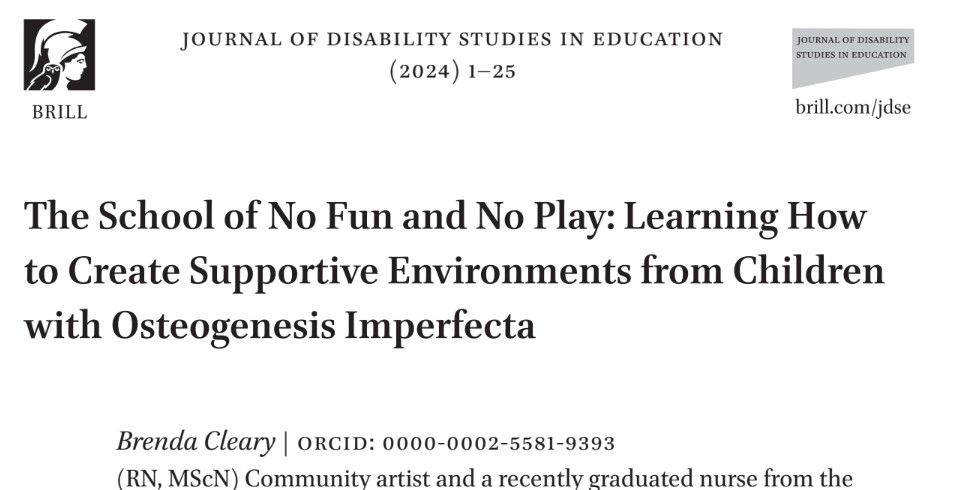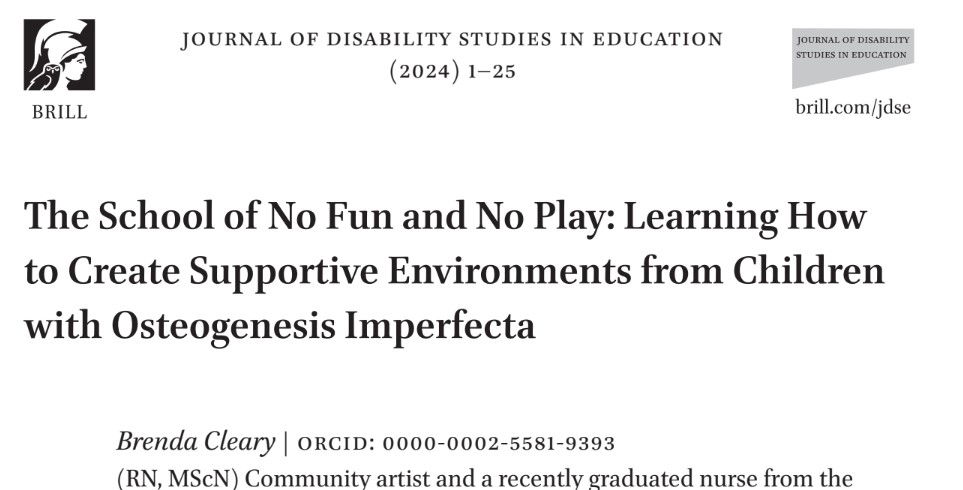The School of No Fun and No Play: Learning Howto Create Supportive Environments from Childrenwith Osteogenesis Imperfecta


Children with medically complex dis/abilities hold sophisticated views on effectiveschool leadership, adapted built environments, inspiring peer solidarity, catalyzingtransformational solutions and a possible school-hospital liaison model to supportstudent well-being. Using child-centric collaborative techniques, this ethnodramaticstudy engaged children with osteogenesis imperfecta (oi), a rare genetic disease,to create a children’s book describing their moral experiences to be disseminatedto other children and families. Children living with oi experience ongoing medicalinterventions and dis/ability that broadly jeopardized the quality of their academicexperience relative to their peers. As such, children living with oi offered trenchantinsight into what supports and thwarts operationalization of their values andhighlights the programs, leadership, services and paradigm shifts they feel that theyneed to flourish in the academic context.